Wasps are one of the most irritating & nuisance household insects. If they bite you, you may get severe allergic reactions. So, it’s essential to stay away from them, but how? You can use household products like soap and bleach to kill them. The question now is: does bleach kill wasps?
Yes, bleach can kill wasps, but it’s not the best or most suggested way to deal with a wasp infestation. Although bleach harms wasps, wasp control pesticides are more effective and safer to use.
Are you interested in knowing how to kill wasps using bleach and other methods? If so, read the below guidelines to get a sneak peek of all the ways.
How Does Bleach React to Wasps?
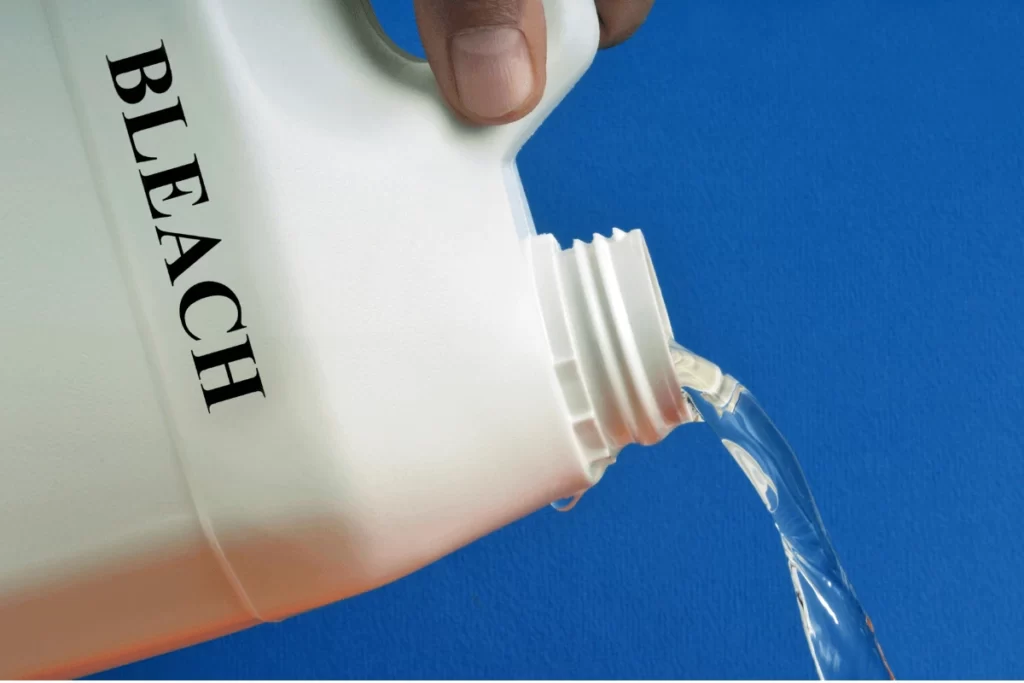
Bleach is a strong chemical compound commonly used as a disinfectant and cleaning agent. The way it responds to wasps when it comes into touch with them can change depending on the bleach’s concentration, how much is used, and the particular circumstances.
Below are some reactions that may occur in waps after coming into contact with bleach;
- Killing of Wasp: Direct contact with bleach can harm and kill wasps due to its corrosive nature. The exoskeletons of insects, especially those of wasps, can be damaged by bleach because it includes sodium hypochlorite. This may cause death from dehydration and suffocation. It’s possible that this process won’t begin right away, even though it might take some time.
- Nest Disruption: Pouring bleach on a wasp nest could damage both the nest’s framework and the wasps inside. The bleach can damage the nest material, which is often made of wood fibers or paper, and weaken its integrity. It may cause the nest to deteriorate and potentially force the wasps to abandon it.
- Safety Issues: Several risks are involved while using bleach to kill wasps. Bleach is a potent chemical and can be harmful to humans as well. If wasps feel intimidated while applying bleach close to them or their nests, you could get stung. In addition, bleach fumes can irritate the skin, eyes, and respiratory system.
Therefore, it is advised to employ a professional pest control company to eradicate a wasp infestation or nest to ensure safe and effective eradication without adding unnecessary risks to you or the environment.
How Can You Use Bleach to Kill Wasps?
Although it’s not the most efficient method, bleach can kill wasps. If you nevertheless insist on using bleach, adhere to following guidelines:
- You Must Prepare: Put on protective clothing, such as goggles, gloves, long sleeves, and pants. Because bleach is a potent chemical that can irritate the skin and eyes, take the appropriate safety measures.
- Dilute the Bleach: Combine water and bleach in a solution. The precise ratio will depend on the bleach’s strength. A typical mixture is two parts water to one part bleach. It will lessen the bleach’s potency and any potential damage it might do to surfaces.
- Fill a Spray Bottle: Pour the diluted bleach solution into a spray bottle. To prevent unintentional use for other reasons, make sure the bottle is labeled.
- Locate the Nest: Identify the wasp nest. Avoid unexpected moves that can spook the wasps as you gently approach the object.
- Employ the Solution: Spray the nest with the diluted bleach solution. Try soaking the nest fully. Wasps may be harmed by the bleach’s chemical composition and fumes.
- Monitor the Nest: After applying the bleach solution, keep an eye on the nest for a while. Some wasps might be killed, and others might abandon the nest due to the bleach’s effects.
- Taking Carefully: Once you are convinced that the nest is no longer active, you can take the nest out. Wear protective gear while you go through this process.
Last but not least, it’s imperative to carry out this treatment outside in a well-ventilated place because bleach fumes can be dangerous if ingested.
How Long Does Bleach Take to Kill a Wasp?
A wasp’s death rate from bleach can vary depending on its concentration, size, and intensity of direct exposure, among other things. Bleach is an extremely toxic substance that can kill insects, especially wasps. A wasp may suffer from chemical burns to its body and breathing difficulties if it comes into direct contact with bleach.
Depending on how long it takes, a wasp can pass away at any time between a few minutes and several hours. It is preferable to use insecticides or wasp sprays that are readily accessible in stores and are designed specifically to kill wasps and other stinging insects if you have a wasp infestation. When wasps come into touch with these items, they are rapidly rendered ineffective and killed.
Precautions while Using Bleach to Deter Wasps
Although using bleach to deter wasps is an effective strategy, you must exercise sufficient caution to protect both your safety and the safety of the environment. Here are some things to remember regarding safety:
- Wear Gloves: Wear appropriate safety gear, such as long sleeves, pants, gloves, and goggles. It will prevent accidental contact with bleach and potential stings from wasps.
- Be in a properly ventilated Area: Make sure you’re in a well-ventilated area while using bleach outside. Inhaling bleach vapors in confined spaces can be dangerous and potent.
- Avoid Skin Contact: As bleach may cause chemical burns and irritation, keep it away from your skin. Cleanse the area completely as soon as it comes into touch with your skin.
- Dilute the Bleach: When using bleach as a spray, be sure to dilute it in accordance with the manufacturer’s recommendations. Bleach and other chemicals shouldn’t be mixed together as the resulting vapors could be hazardous.
- Employ Bleach at nighttime: Wasps are less active at night, so consider applying bleach when it’s dark outside. It might lessen the possibility of being stung.
- Keep Your Children and Pets Away: Keep kids and animals out of the area where you’re administering bleach. It will prevent accidental exposure and potential harm.
- Dispose of the Leftover Bleach: Lastly, dispose of any leftover bleach solution and containers in a legal manner by local laws. Never directly dump bleach into the ground or any water sources.
Above all, you should always consult a pest control professional if you’re worried about a wasp infestation to find out what to do next.
Other Things that Can Kill Wasps
There are several alternatives to bleach that can effectively kill wasps and help manage wasp infestations. Here are some alternatives to bleach for getting rid of wasps:
Hairspray
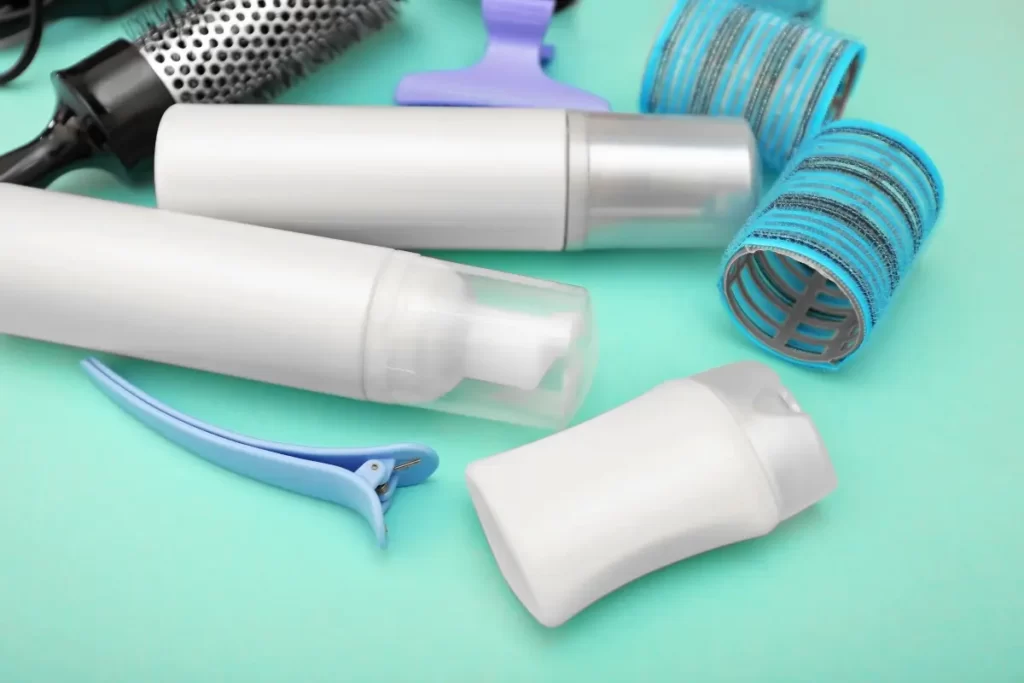
You can use hairspray to deter wasps, but it’s ineffective at killing wasps. Hairspray includes chemicals that can choke and paralyze insects like wasps by obstructing their airways. Nevertheless, getting too close to the nest when using hairspray to kill wasps runs the risk of agitating them and making them attack in self-defense.
In addition, hairspray can cover a wasp’s body and wings when applied directly to them or a nest, making it impossible for them to fly or flee. Additionally, you can kill them by slowing their mobility with hairspray. Hairspray will not immediately kill wasps but it will cause them to drop.
However, it’s vital to exercise caution while using this method, as wasps can become agitated and aggressive when threatened.
Peppermint
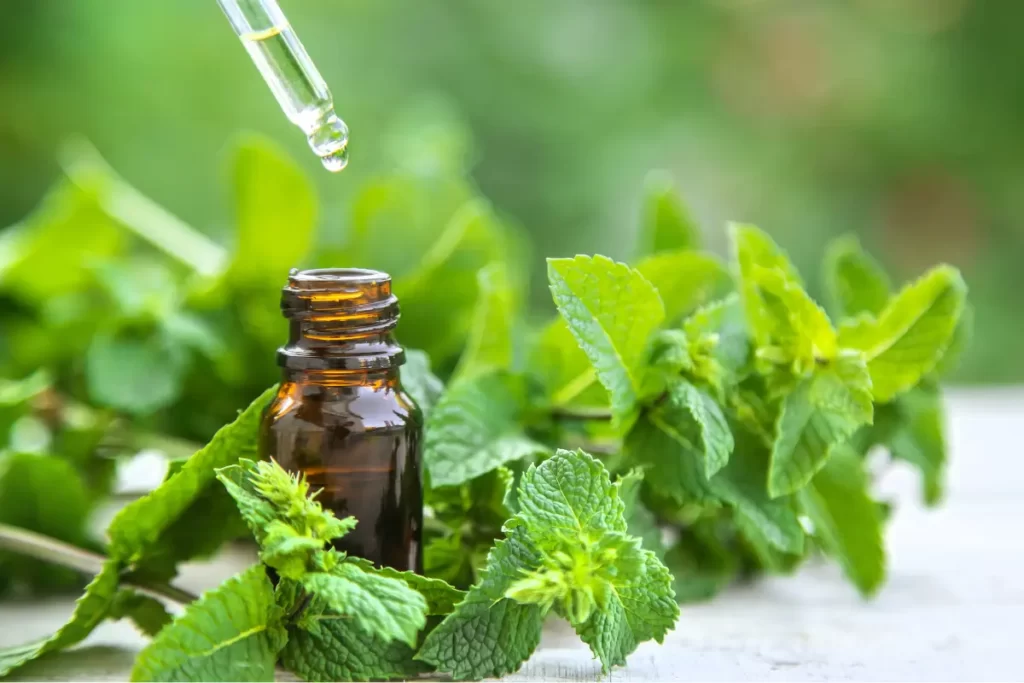
Peppermint is a natural remedy to deter or repel wasps but is not good at killing them. It has a strong and pungent odor that is pleasant to humans but can be overwhelming to insects like wasps. The strong scent disrupts their chemical communication and navigation systems, making it harder for them to locate food sources, nests, or potential breeding sites.
Moreover, the strong fragrance and constituents of peppermint oil irritate wasps. Their sensory receptors may become uncomfortable or irritated when they come into contact with the oil, making the region less alluring. It makes it a fantastic option for anyone who wants to stay away from wasps while taking in the outdoors.
Dish Soap
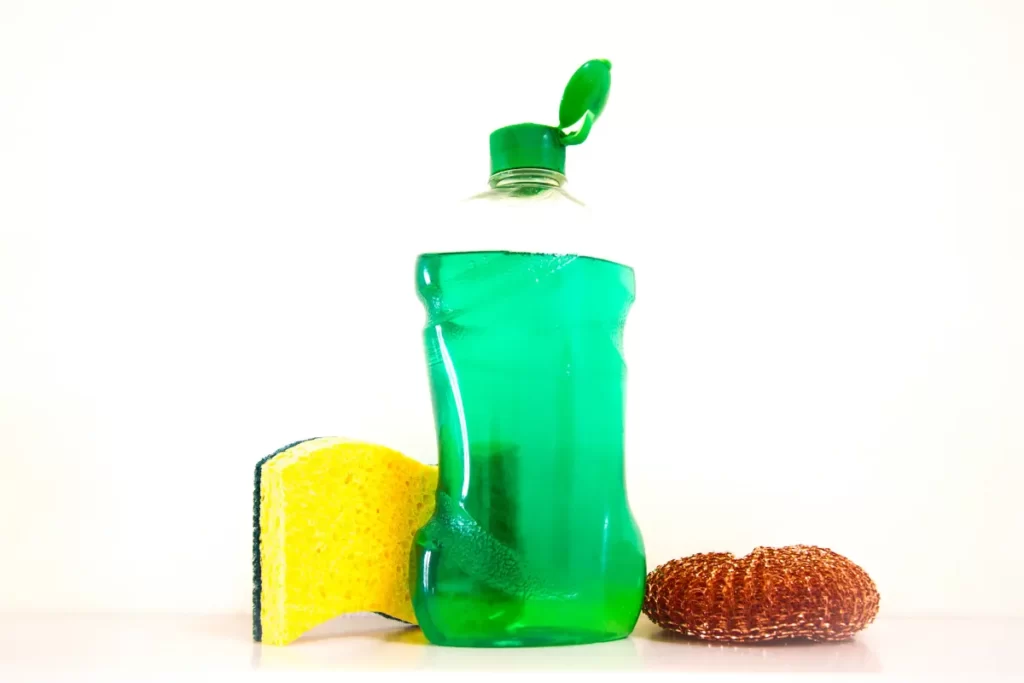
Dish soap is an effective and natural way to kill wasps. They eventually suffocate as a result of the interference with their respiratory system. To kill wasps, combine one tablespoon of dish soap with one to two cups of water in a spray bottle.
After that, shake the spray bottle to ensure proper mixing of the solution. Then, aim the nozzle at the nest and spray it directly. Make sure the nest is completely saturated with soapy water.
After spraying the nest, step back and observe from a safe distance. The soap will prevent the wasps from flying, which will make them land on the ground. Wait a few hours for the wasps to perish or become helpless. After that, carefully remove the nest and discard it in a tight bag.
Additionally, if any wasps survive the initial treatment, you might need to repeat the procedure depending on the size of the nest and the quantity of wasps.
DIY Sugar Water Trap
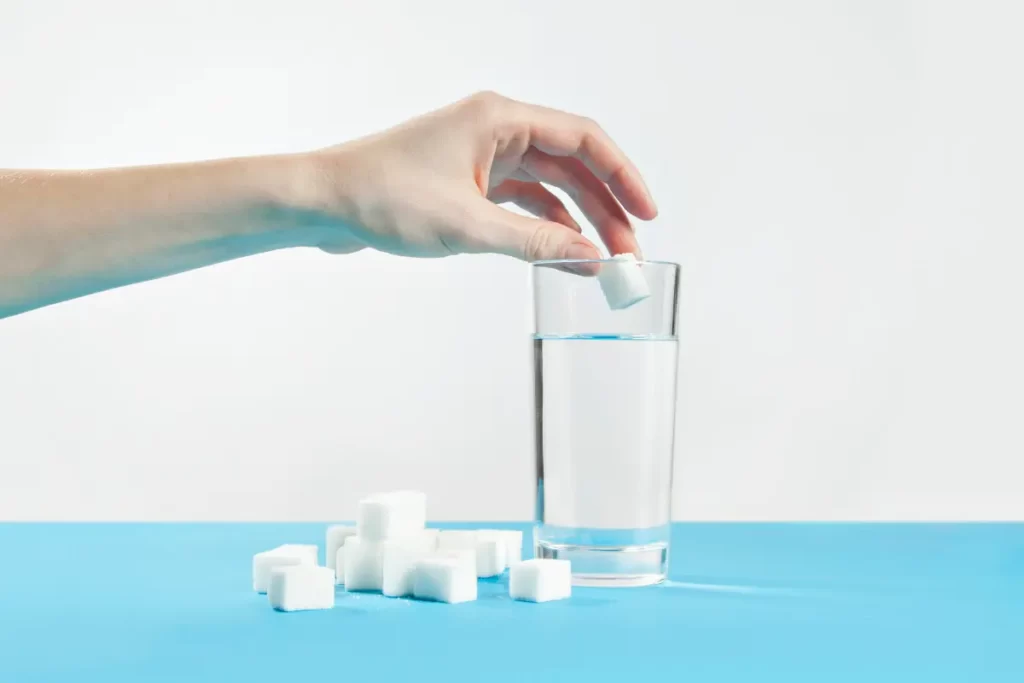
It is another effective way to kill wasps. To create a DIY sugar water trap to kill wasps, follow these steps:
Materials required:
- A plastic container, such as one used for soda or water
- Scissors or a knife
- String or wire
- Sugar
- Water
- Vinegar
- Dish soap
To build a trap; follow these steps:
- Firstly, cut the top third of the plastic bottle off with scissors. Make sure the cut is straight and smooth.
- After that, prepare the mixture. For this, combine equal parts of sugar and water in a different container. To make the mixture stronger, you can also add a tiny bit of vinegar or dish soap.
- After preparing the solution, place it in a trap. Fill the bottle approximately one-third full with the solution. Forming a funnel-like shape, insert the bottle’s top portion within the bottom.
- Now, secure the open part of the bottle with a sting, then it in an area where you suspect the presence of wasps.
- Remember to check the trap regularly to empty it from wasps.
Essential Oils
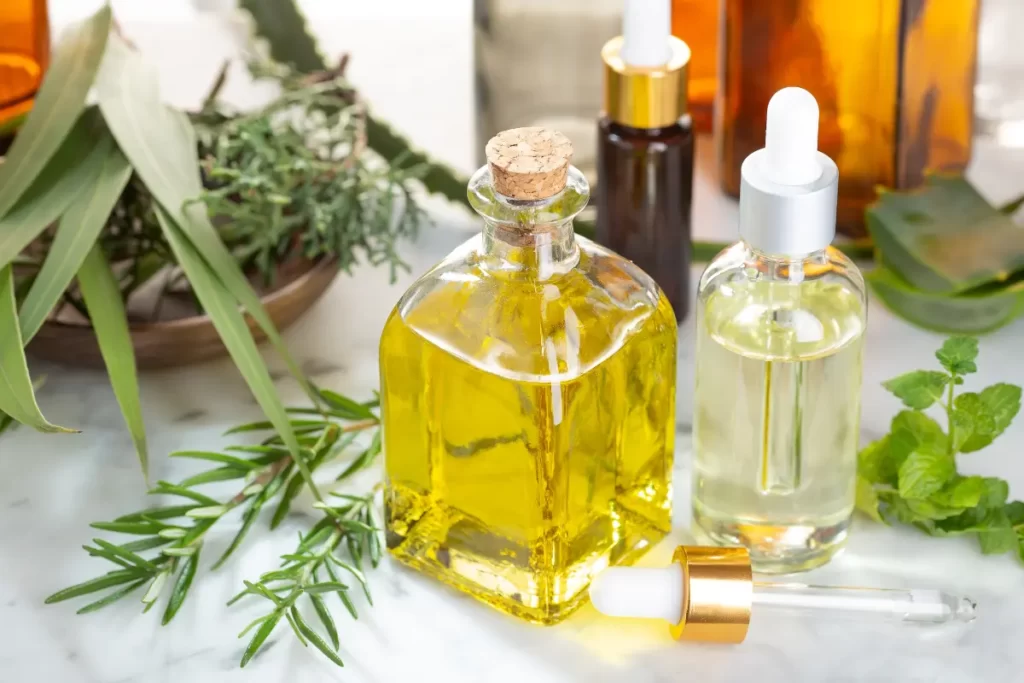
Using essential oils to kill wasps is another natural remedy to kill wasps. Below are some ways to follow to kill wasps with essential oils:
- First of all, choose the essential oils known for insect-repelling properties, such as peppermint, clove, lemon eucalyptus, and tea tree oil. These oils have strong scents that repel wasps.
- Put some water in a spray bottle and add a few drops of the selected essential oil. Shake well before using.
- Now, identify the wasp nests in your surroundings. Approach them cautiously, especially if you’re allergic to wasp stings.
- After that, spray the repellent mixture directly onto the wasp nests when wasps are less active, especially in the early morning or late evening.
- Moreover, you can soak cotton balls or rags in the essential oil mixture and place them around outdoor living spaces where wasps are commonly present. It will create a barrier to keep away wasps.
Windex
Windex is quite good at killing most household insects, including wasps and hornets. However, it’s slightly less effective against wasps, but many will die, and those who don’t will slow down to be easily trapped.
Mix one part bleach, one part Windex, and two parts fresh water in a lawn sprayer with a wand that can spray at least 2 feet away. However, using Windex to kill wasps is not the most recommended method. While Windex contains chemicals that might deter or harm insects, it’s not specifically designed for dealing with wasps. It might be dangerous for both people and animals because of its chemical makeup.
Remember that if you have a wasp infestation, the best wasp control techniques and tools should be applied.
Bottom Line
Wasps are one of the most resilient and irritating household insects.You might be worried about getting stung if you’ve ever seen a wasp scurrying around. Although there are several treatments, getting rid of them is never simple.
You can use bleach to scare them away or make them flee, but it won’t kill wasps. If you’re interested in repelling wasps with bleach, opt for safety measures, wear gloves & glasses, and stay away from a nest to get bitten by wasps.
Apart from bleach, you can use essential oils, dish soap, and Windex to kill wasps. However, make sure to prioritize your safety while killing or repelling wasps.

